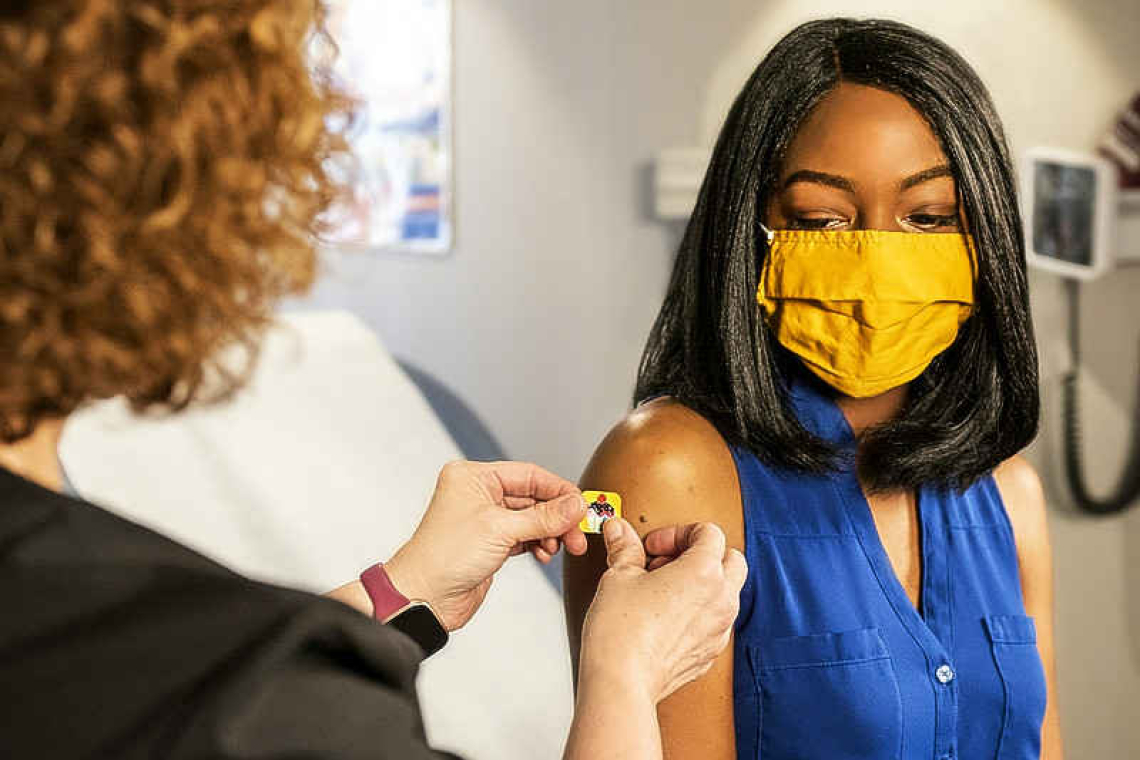By Dr. Colin Michie FRCPCH University of Central Lancashire.
Although the Covid-19 pandemic is over, the American president contracted the virus this summer, and athletes in Paris tested positive as Covid continues to infect people everywhere (see related article on page 3).
Hospital cases of Covid infections in the United Kingdom, mostly in those over 85 years of age, are rising. Observations on wastewater analysis in the US show that coronaviruses can be found in large numbers in several states. This is a valuable method for viral surveillance, as most respiratory viruses can be identified in our faeces.
As has happened before with Covid, new variants have evolved that are not being killed or removed completely by human immune defences. JN.1 variants are causing a wave of breakthrough infections as they are more easily transmitted. They have their origins from the Omicron variant and cause similar symptoms to this viral ancestor – a runny nose, possibly a persistent cough, headache, fatigue and muscle aches. High fever and a loss of taste or smell are seen in only a small number of sufferers.
Respiratory viruses used to be a feature of cooler weather, but new coronavirus variants are spreading this summer without difficulty between humans. Approximately 20% more of us use domestic and international voyaging in summer months. Schoolchildren on their breaks, sports competitions and other entertainments ensure lots of summer vacationing! Figures from the French Caribbean showed that air traffic contributed significantly to the spread of the original pandemic; air travel seems to be an effective way to spread Covid.
During and after the pandemic, it was found that a number of animal species can become reservoirs of Covid viruses. Deer species in America and Ireland have been found to carry the same viruses as their human neighbours. Cats can be infected too, although rodents do not appear to carry our coronaviruses. The infection of humans from animals is thankfully rare, but it is sobering to realise we were not the only ones affected by these new viruses. Surveillance is being enhanced to ensure public health specialists are aware of any new Covid variants in animal species with which we come in regular contact.
What have we learned about protection against serious illness from Covid? Our immune system shields us against catching most viruses a second time, or at least becoming very unwell with them again. This has proved generally true for Covid infections. A previous infection provides protection against more severe illness with Omicron and JN.1, for instance. Safeguarding is delivered by vaccination, too – on a global scale, this reduced severe illness, deaths, hospital admissions and probably post Covid-19 syndrome, too.
Vaccination reduces the severity and duration of symptoms. Younger workers in the tourism industries, in particular, have faced challenges and significant mental stresses over the issue of vaccination. Current reviews are strongly supportive of its benefits at most ages. For this reason, booster vaccines are now made available in some countries to the elderly and perhaps many more of us this autumn.
Protection against catching coronaviruses is greatly helped by mask-wearing in public places. Avoiding crowded rooms with poor air exchange is beneficial. Should you develop a persistent cough, it is important to isolate yourself, wash your hands regularly, keep drinking water and employ over-the-counter treatments for your symptoms. Testing for Covid remains helpful – test kits can detect the new variants. Should you develop any severe symptoms, such as difficulties with breathing, a high fever or confusion, please seek help!
New approaches to Covid are being widely and energetically researched. There are designers manufacturing face masks to include recycled marine plastic waste. There are advanced systems to interpret lung X-rays more effectively. Treatment trials include the use of aspirin to reduce blood clotting complications, or agents such as colchicine and vitamin D to reduce inflammation. There are several new antiviral medications as well as specific antibody treatments available. The value of vaccine delivery systems using lozenges, or the delivery of antiviral treatments in nasal sprays are being trialled. The finding that low doses of steroids can promote recovery in Covid pneumonia is already a readily available hospital treatment.
National reviews of pandemic processes have all declared that the world needs to be better prepared for pandemics. Safety is no accident. Getting ready for another emerging infectious disease should become a new normality in all healthcare provision and community planning. Further, epidemics or pandemics should not be able to compromise current delivery of health care. Dealing with the pandemic hampered routine cancer screening, the rehabilitation of cardiac and stroke patients and the supply of medications, vaccines and training to deprived communities, for instance. International calls have been made to ensure that global health reforms continue, despite the ongoing threats from coronaviruses.
Coronaviruses are a persistent menace and threat that should command our care and respect, whatever the season.
Dr. Colin Michie is currently the Associate Dean for Research and Knowledge Exchange at the School of Medicine in the University of Central Lancashire. He specializes in paediatrics, nutrition, and immunology. Michie has worked in the UK, southern Africa and Gaza as a paediatrician and educator and was the associate Academic Dean for the American University of the Caribbean Medical School in St. Maarten a few years ago.







